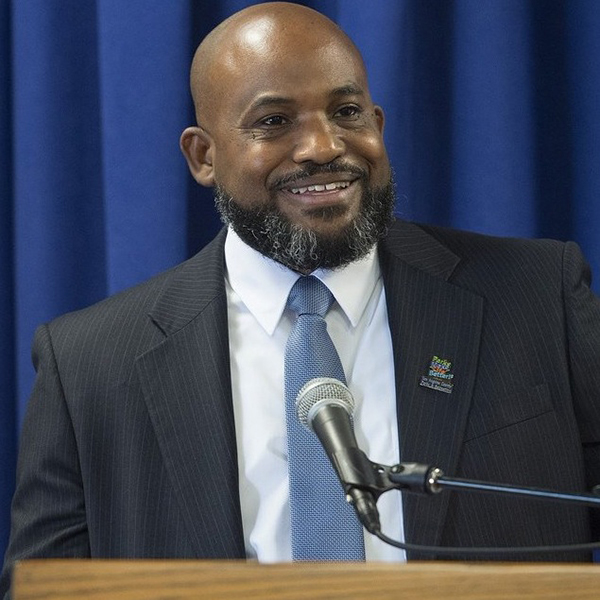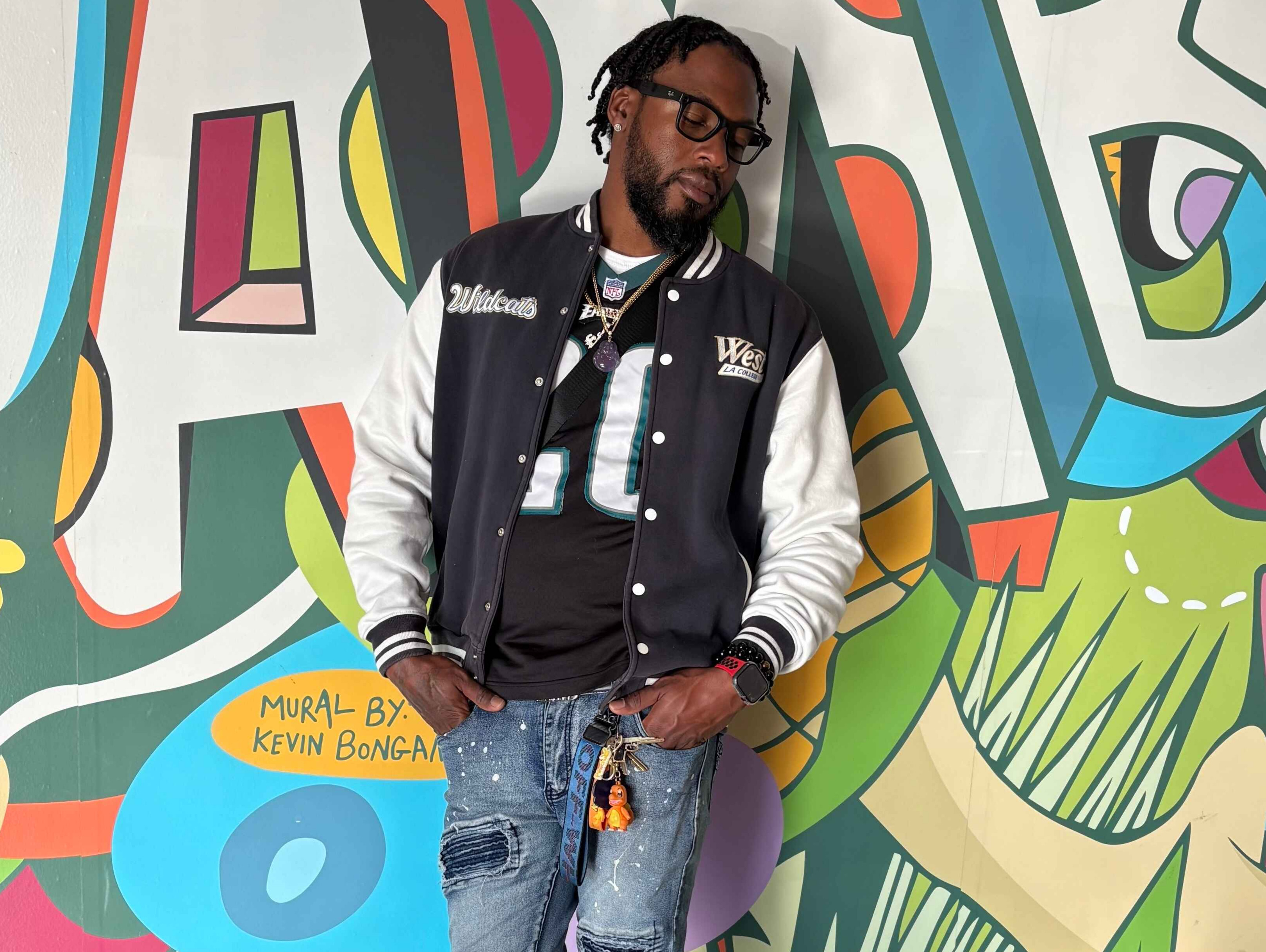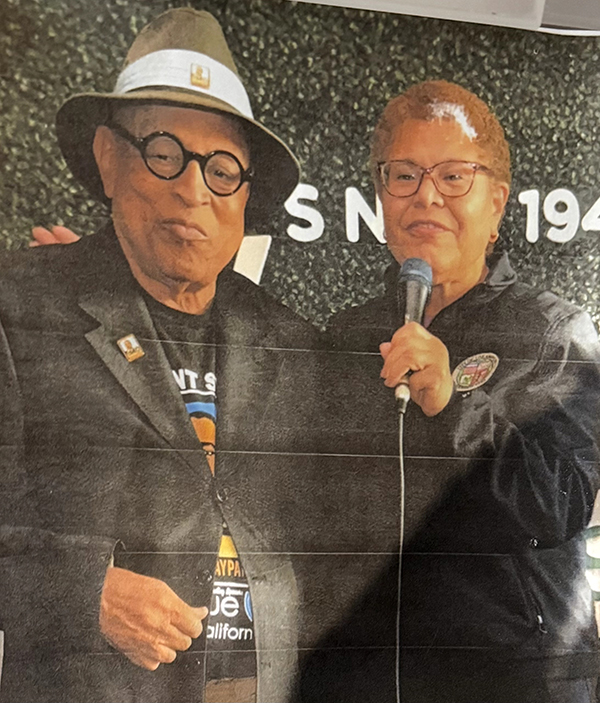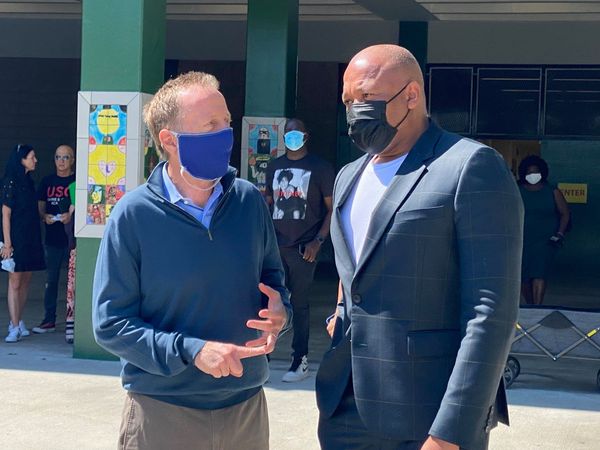What’s next for L.A.?
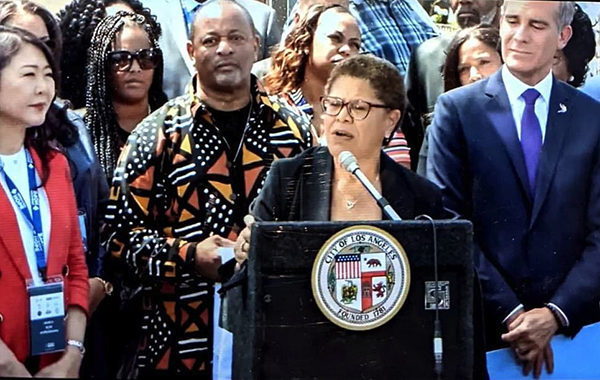
By Ray Richardson
Contributing Writer
SOUTH LOS ANGELES — What’s next for Los Angeles after a 30-year remembrance of the Rodney King riots brought together civic leaders, activists, police officials and two communities still coping with a fragile relationship?
For organizers of the commemoration, the ideal outcome would be significant healing between Black and Korean-American communities and more peace and trust between the Los Angeles Police Department and minorities.
There are beliefs that both goals are within reach.
“We laid out a blueprint for continued unity, reconciliation and peace for the city,” said Najee Ali, executive director of Project Islamic Hope and one of the commemoration organizers. “We believe this blueprint will make a difference.”
Ali was among a large contingent of civic and community leaders that gathered April 29 on the corner of Florence and Normandie avenues — the flashpoint of the 1992 riots — for a press conference designed to move the city forward.
Speakers at the press conference included Los Angeles Mayor Eric Garcetti, U.S. Rep. (and mayoral candidate) Karen Bass; Gerald Woodyard, commanding officer of LAPD’s South Bureau; Lora King, Rodney King’s daughter; and Shinese Harlins, cousin of Latasha Harlins, a Black teenager who was fatally shot by a Korean store owner in 1991.
Latasha Harlins’ shooting motivated Black protestors to destroy Korean-owned businesses during the riots. Shinese Harlins, who created the Latasha Harlins Foundation, pledged her support to help build peace between the two communities. Harlins was invited to speak on April 29 at the closing commemorative service, an event coordinated by the SAIGU30 Campaign, a Korean-based initiative.
“After I spoke, several Koreans came up to me and asked if they could hug me,” Harlins said. “I said ‘Bring it on’. One of the Asian guys told me he wants to get into a better comfort zone and talk more to Black people. Both sides need to get more comfortable talking to each other.”
The push for unity will not be easy. Shortly after the Florence and Normandie press conference, Harlins said she received a couple of hate emails through her website from Korean-Americans.
Harlins said one of the emails claimed her cousin “got what she deserved.” Harlins said she did not respond to the emails.
Ali also had a challenging moment when a Black gang member approached him after the press conference objecting to attempts to make peace with the Korean-American community.
“We have to move forward and ignore the ignorance of a few,” Ali said. “The majority of the Black community definitely wants peace and reconciliation with Korean citizens in our city.”
Hyepin Im, president and CEO of FaceLA, one of the main organizers of the 30-year commemoration, said this remembrance of the riots had a “much different feel” than the 10- and 20-year observations. Im, a South Korean native who has lived in Southern California since 1974, is optimistic that relations between Black and Korean-American communities will improve.
“I can honestly feel that this year was truly a breakthrough,” Im said. “Something is shifting. I am very hopeful. At least there’s a pathway for understanding. I think we can minimize a repeat of all the bad interactions in the past.”
Im and Harlins chatted after Harlins spoke at the closing commemoration service. They exchanged numbers and agreed to keep in touch and collaborate on future events.
Im invited Harlins and Ali to a luncheon May 9 at the Korean Consulate in Hancock Park.
Ali expressed hope that similar outreach with LAPD will continue after the 30-year commemoration. Ali and other Black leaders have applauded LAPD Chief Michel Moore for being more “cooperative and accessible” regarding police issues in Black communities.
“There has been major progress,” Ali said. “Whenever we’ve raised issues about racial profiling or other things, Moore has addressed it quickly and made changes. LAPD is doing [its] part. We have to look in the mirror more and do our part. The police are not killing us everyday. We’re doing that to ourselves.”
Ray Richardson is a contributing writer for The Wave. He can be reached at rayrich55@gmail.com.

